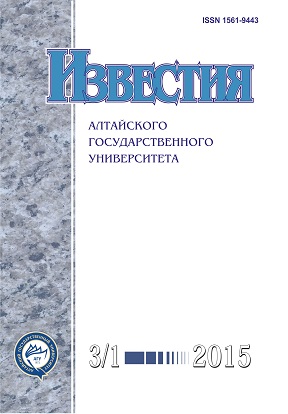Тhe Punishment in F.M. Dostoyevsky’s Novel “The Humiliated and the Insulted”: the Metaphysics of Retribution
Abstract
The first novel “The Humiliated and the Insulted” became Dostoyevsky’s response to crisis of Russian legal system, a metaphorical appeal to change of a paradigm of punishment. The title of the novel emphasizes the composition of the article “humiliation of a human dignity, an insult of honor” and is the first element of a legal discourse. In the new novel about the Petersburg life, Dostoyevsky builds the whole system of the crimes based on passion and/or deceived trust, on material calculation, on abuse of authority. The center of criminology in the novel is the chief criminal - prince Valkovsky remaining unpunished, as he embodies the ontologic evil necessary for the Creator to test human essence. The novel exposes the state court as the means of achievement of justice, and offers in exchange to it three types of remedial actions: duel, refusal of “practical application of the law” and home court. Punishment of characters in the absence of disciplinary institutes is carried out not according to the law and impersonal norm, but according to the internal moral imperative. The writer is guided by lex talionis - the requital law - the archaic judicial principle of the absolute theory of punishment.
DOI 10.14258/izvasu(2015)3.1-25
Downloads
Metrics
References
Степанова Т.А. Художественно-философская концепция детства в творчестве Ф.М. Достоевского : дисс.. канд. филол. наук. - М, 1989.
Бахтин М.М. Формы времени и хронотопа в романе // Бахтин М.М. Эпос и роман. - СПб., 2000.
Достоевский Ф.М. Полн. собр. соч. : в 30 т. - Л., СПб., 1972-1990. - Т. 3.
Щенников ГК. Достоевский и русский реализм. - Свердловск, 1987.
Щенников Г.К. Эволюция сентиментального и романтического характеров в творчестве раннего Достоевского // Достоевский : Материалы и исследования. - Л., 1983. - Т. 5.
Галковский Д. Бесконечный тупик : изд. 2-е, испр. и доп. - М., 1998.
Аскольдов С. Религиозно-этическое значение Достоевского // Ф.М. Достоевский. Статьи и материалы / под ред. А.С. Долинина. - М. ; Л., 1922.
Бахтин М.М. Проблемы творчества Достоевского : 5-е изд., доп. - Киев, 1994.
Козлова С.М. Русский буржуазный роман: истоки и современность // Русская словесность в мировом культурном контексте : материалы международного конгресса. Москва, 14-19 декабря 2004 г. - М., 2005.
Достоевский Ф.М. Полн. собр. соч. : в 30 т. - Л., СПб., 1972-1990. - Т. 20.
Достоевский Ф.М. Полн. собр. соч. : в 30 т. - Л., СПб., 1972-1990. - Т. 23.
Фуко М. Надзирать и наказывать. Рождение тюрьмы / пер. В. Наумова. - М., 1999.
Исаев И.А. История государства и права России. - М., 1999.
Российское законодательство X-XX веков [Тексты и комментарии] : в 9 т. / под общ. ред. О.И. Чистякова. - М., 1984-1994. - Т. 4.
Кони А.Ф. Фёдор Михайлович Достоевский // Кони А.Ф. Воспоминания о писателях. - М., 1989.
Izvestiya of Altai State University is a golden publisher, as we allow self-archiving, but most importantly we are fully transparent about your rights.
Authors may present and discuss their findings ahead of publication: at biological or scientific conferences, on preprint servers, in public databases, and in blogs, wikis, tweets, and other informal communication channels.
Izvestiya of Altai State University allows authors to deposit manuscripts (currently under review or those for intended submission to Izvestiya of Altai State University) in non-commercial, pre-print servers such as ArXiv.
Authors who publish with this journal agree to the following terms:
- Authors retain copyright and grant the journal right of first publication with the work simultaneously licensed under a Creative Commons Attribution License (CC BY 4.0) that allows others to share the work with an acknowledgement of the work's authorship and initial publication in this journal.
- Authors are able to enter into separate, additional contractual arrangements for the non-exclusive distribution of the journal's published version of the work (e.g., post it to an institutional repository or publish it in a book), with an acknowledgement of its initial publication in this journal.
- Authors are permitted and encouraged to post their work online (e.g., in institutional repositories or on their website) prior to and during the submission process, as it can lead to productive exchanges, as well as earlier and greater citation of published work (See The Effect of Open Access).








